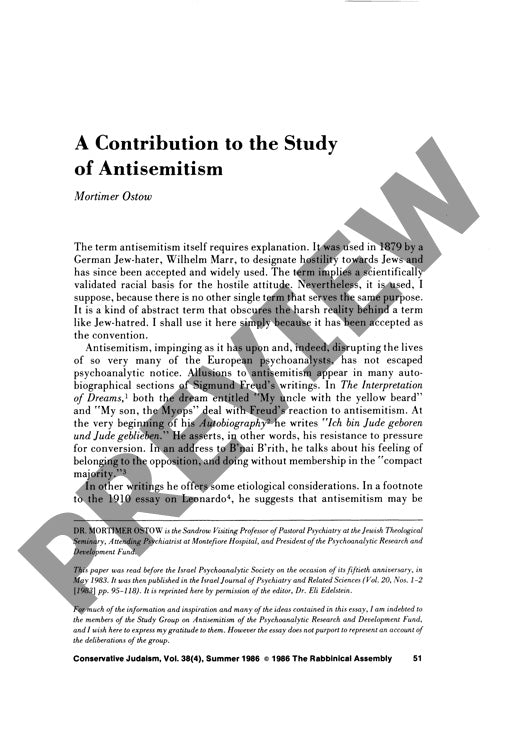A Contribution to the Study of Antisemit
Couldn't load pickup availability
Beneath the surface of apparent tolerance toward Jews lies a complex psychological ambivalence - one that can transform seemingly philosemitic individuals into carriers of antisemitic attitudes during periods of stress or crisis. Through psychoanalytic investigation of non-antisemitic individuals, including Protestant and Catholic patients who specifically sought Jewish analysts, consistent patterns emerged of simultaneous attraction and rejection toward Jews. Clinical case analysis of six subjects, supplemented by examination of historical figures and literary sources, revealed that xenophilic attraction to Jews frequently originates in early experiences of parental rejection, Oedipal anxieties, or desires to overcome family alienation. When these individuals encounter real or perceived rejection from the Jewish community, their positive sentiments can rapidly deteriorate into hostility through psychological mechanisms of projection and scapegoating. The investigation particularly focused on self-described friends of Jews who harbor underlying resentments about perceived Jewish exclusiveness and separatism. Analysis demonstrates that even philosemitic individuals maintain ambivalent feelings that can be activated during periods of transference resistance or external stress, representing a regression from xenophilic to xenophobic attitudes. These findings illuminate how ordinary citizens, rather than committed antisemites, may be drawn into persecutory movements during social crises, suggesting that the psychological foundations for antisemitism are more deeply embedded in seemingly tolerant populations than previously recognized in psychoanalytic literature.

More Information
-
Physical Description
-
Publication Information
Published 1986
ISBN
-
Publication Credits
Mortimer Ostow

